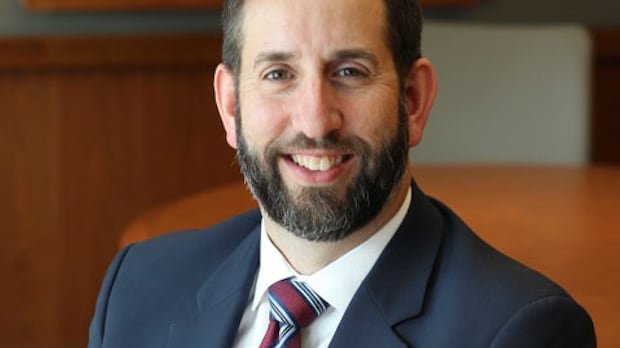Recently, Ottawa signed an extrajudicial agreement with a team of Quebec architects that was denied a prestigious contract to design the National Monument to the Canada’s mission in Afghanistan.
The sources told Radio-Canada that the confidential agreement is worth more than $ 100,000, or at least three times the initial offer made to the team led by the architect Renée Daoust based in Montreal in 2023.
At that time, Daoust’s team learned that he had won a national competition to design the $ 5 million monument, but that Ottawa would give the contract to the group led by indigenous artist Adrian Stimson.
Forced by a confidentiality clause, Daoust’s team refused to comment on the agreement. In a written statement, however, they thanked everyone who supported them in their attempt to force Ottawa to change their decision.
“We are still outraged by this process fogged by irregularities and we reiterate our commitment to the quality of architecture and public art in Canada, and with the integrity of the processes by which public funds are assigned,” said Daoust’s statement, the artist Luca Fortin and international law expert Louise Arbor.
The Federal Government said it granted the design contract to Stimson because his project was favored by the families of the Canadians who served in Afghanistan, as expressed in an online survey. Daoust’s team had been selected by the jury in charge of reviewing the presentations.
Jean-Pierre Chupin, architecture professor and expert in public competitions, said the government’s decision was critically defective.
“They discredited a complex and fragile competition process that aims to be fair, transparent, representative and, therefore, democratic,” said Chupin, who teaches at the University of Montreal.
He said that the online survey can be “clearly disqualifiable after a few minutes of analysis”, comparing it with a competition for “likes” on Facebook.

More than 40,000 Canadians served in Afghanistan between 2001 and 2014, mostly military personnel, but also government employees and humanitarian workers. Of these, 158 soldiers and seven civilians lost their lives.
The monument project was initiated by former Prime Minister Stephen Harper and continued under the government of Prime Minister Justin Trudeau.
The proposal of the Daoust team aimed to symbolize the struggle for democracy, incorporating elements that remind the mountains of Afghanistan, the burka used by some women in the country and the twin towers that fell in New York on September 11, 2001.
The Stimson design of the Government Government refers more directly to the military aspect of the Afghan mission, with four helmets and bullets mounted in crossings in the center of the monument.

After informing the Daoust team that the contract would not be granted, Ottawa offered them $ 34,000 in compensation in an attempt to resolve the matter.
Instead of accepting the offer, Daoust’s team was made public, obtaining significant support and denouncing the federal government’s decision in the media and Parliament.
His main concern was that Ottawa would establish a dangerous precedent by not taking into account his own process to grant the main public contracts.
However, Daoust’s team could not convince the government to reverse their decision. The liquidation negotiations began after the blessing of the site of the center of Ottawa of the future monument designed by Stimson the past autumn.

The Office of the Minister of Veterans Affairs refused to provide details about the agreement, citing its confidentiality clause.
The spokesman Wyatt Westover said that Stimson’s team has “completed the design contract” with the National Capital Commission, which manages the site where the monument will be built.
The last Budget of Affairs Canada for the monument is $ 4.7 million. The Federal Department says that it is currently performing “a cost analysis to ensure that the monument is completed as planned while honoring the service and sacrifice of Canadian veterans, their families and everyone who served in the mission.”
The group of Quebec architects that was first selected and then rejected to build the National Monument of Canada to veterans of the Afghan mission are threatening to sue the government if they are not given the complete contract.
The deputy of Bloc Québécois, Luc Desilets, who spent months by pressing the Federal Government on the subject without success, hopes that the agreement includes punitive damage for the Daust team.
He believes that the federal government was “caught with the hands in the dough.”
According to Chupin, the entire project is contaminated by this saga. He fears that the Canadians who served abroad will finally pay the price.
“This was supposed to be a commitment to veterans, to honor them,” he said. “And now, I think we have dishonored them.”










